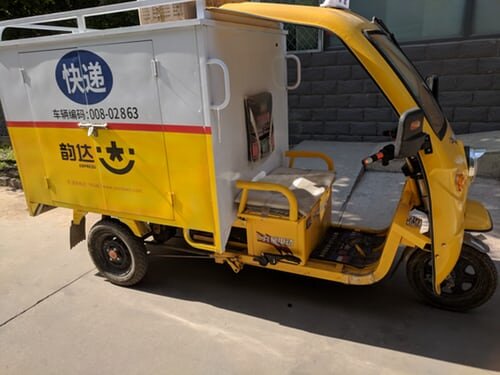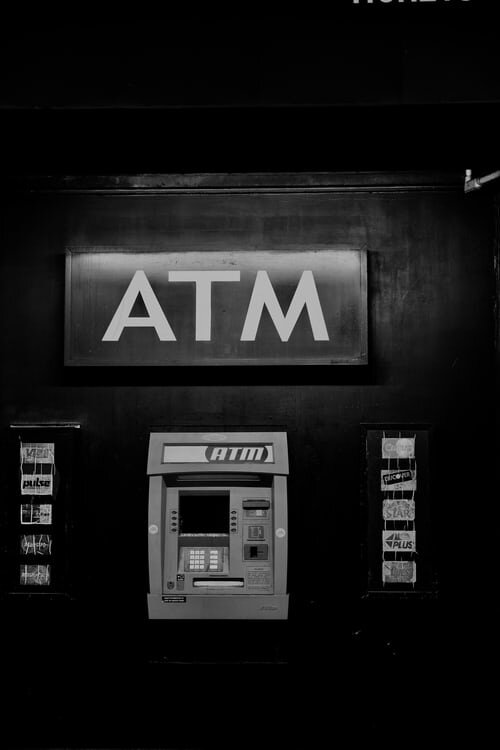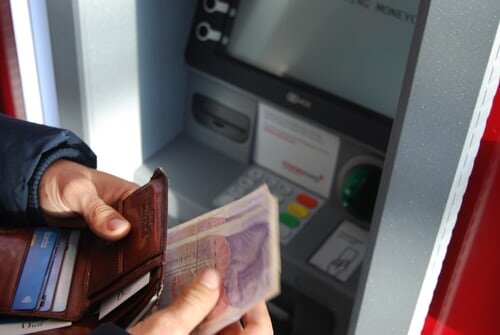Beijing. A City Where Cash Is Definitely Not King.
Imagine if you will, being in Beijing and trying to get from one side of the city to the other. Pretty easy one would have thought as one can simply hail one of the thousands of taxis that cruise the streets of this giant metropolis every day.
However, if you are only carrying cash don’t bother, for you will discover that taxi drivers won’t take your grubby notes so you might have a bit of a walk in front of you.!
If you then think, ok I’ll take the bus or the metro or even picking up one of hundreds of thousands of hire bicycles from one the numerous racks dotted around the city. No luck there I’m afraid. Trying to pay with cash will mean the bike will stay stubbornly locked in the rack.
Carrying cash in Beijing, or in any one of China’s massive cities means you are effectively locked out of the world of digital payments. Even the fast disappearing motorized rickshaws, who were once a popular mode of transport have been sucked into this new age vortex. Most drivers will look down their noses if you try to offer them cash for, like most citizens they too prefer that payment be made by using one’s mobile phone.
Welcome to China’s digital world, a world where where the concept of using cash is disappearing faster than Greenland’s glaciers. It seems slightly bizarre as this was the country that actually invented the concept of paper money in the Tang dynasty way back in 600 AD. and now, there seems to be a headlong rush to eliminate it completely.An example would be buying a coffee using cash at Luck and Coffee, one of China’s fastest growing franchises leaving Starbucks floundering in their wake is akin to trying to learn Mandarin over a weekend.
Staff behind the counter will stare befuddled at the proffered notes as if being handed a poisoned chalice containing something insufferable. The manager will have to be summoned who will then have to retreat to a back room and root around in a locked safe to find a few notes in order to give you your change. The same applies at fruit and vegetable markets, street food markets and even the homeless who will offer you their mobile phones so that f you wish to make a donation you should do it digitally!
A.T.M’s a revolutionary concept just a decade ago are being ripped out of walls as quickly as they were placed there when the revolution began. Of course the concept of cashless payments is universal and the ‘tap and go’ economy is now pretty normal in our neck of the woods. However, the Chinese have embraced the concept with gusto to the point when today eighty- six percent of all commercial transactions are done by using one’s phone.
This is all well and good for those living in the city but for the rural population estimated to be upwards of 350 million it is a severe problem for they are the ‘unbanked’ ones meaning they have no bank account and selling their farm produce at markets is becoming more and more difficult. These are the people that are termed the ‘ left behinds.’
The phasing out of paper money is in the government’s best interests as cash is largely anonymous and the tax authorities don’t like that one bit. All digital payments can be tracked and of course taxed and this is the way to close in on the underground black cash economy. As I write this the vast digital payment systems set up over the last decade are handled by just two tech companies, Alibaba and Tencent, and once again the Chinese authorities are not terribly happy about that. To ‘muscle in’ on this lucrative market the government recently announced that they will be producing their own digital currency, the E.U.N.
Officials from the People’s Bank of China have hinted in recent weeks that the nation is almost ready to launch a digital version of its currency, the Yuan to replace physical cash for consumer payments. There are a number of unanswered questions about how it will all work, ranging from whether it will use a blockchain or some other new system. Despite the unknowns, recent public comments by central bank officials have shed some light on the timeline saying that they are ‘close’.
Not all the details have been revealed but, according to new patents registered by the Peoples Bank Of China, it could work something like this: Consumers and businesses would have to download a digital wallet on their mobile phones and load the digital cash from their account at a commercial bank A bit like going to going an ATM. Once downloaded consumers can then use that like cash to make and receive payments with anyone else who also has a digital wallet.
So once again it would appear that the Chinese are once again inventing the concept of money, only this time is something we can’t see.Then I thought, “what happens if the mobile network goes down and its citizens go offline?
Nah. That won’t happen, this is China after all.
Paul v Walters is the best selling author of several novels and an anthology of short stories. When he is not cocooned in sloth and procrastination in his house in Bali, he scribbles for several international travel and vox pop journals.














